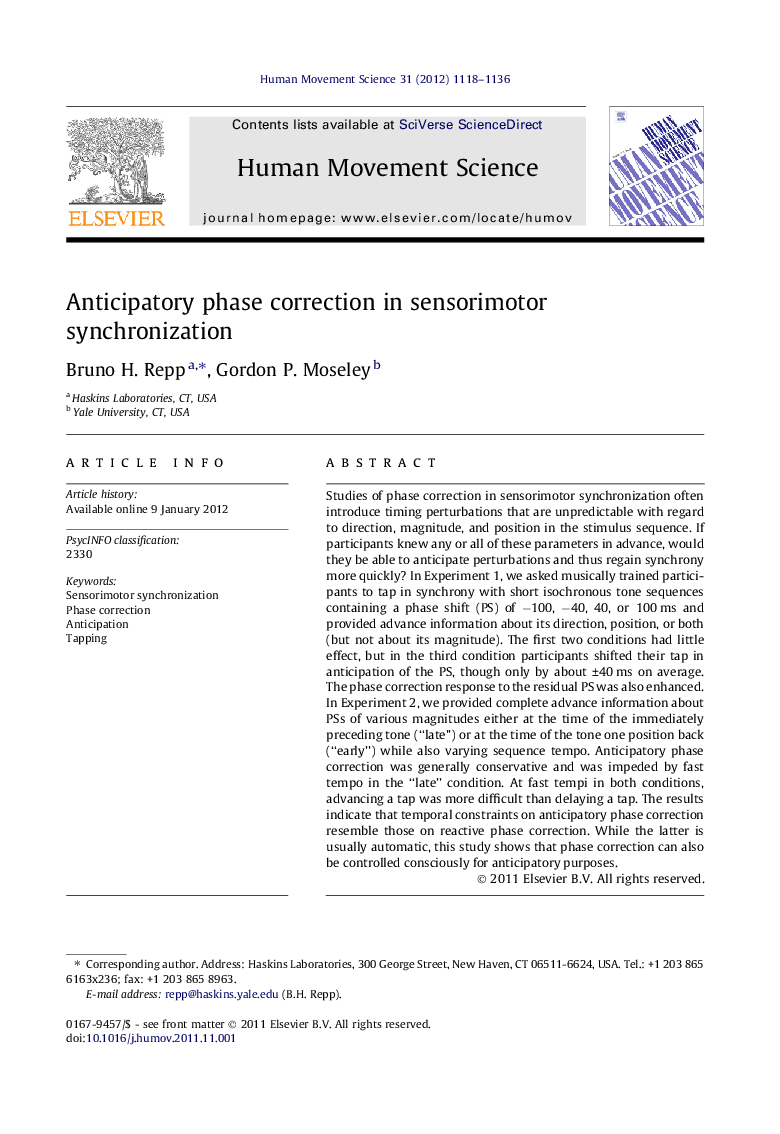| Article ID | Journal | Published Year | Pages | File Type |
|---|---|---|---|---|
| 928374 | Human Movement Science | 2012 | 19 Pages |
Studies of phase correction in sensorimotor synchronization often introduce timing perturbations that are unpredictable with regard to direction, magnitude, and position in the stimulus sequence. If participants knew any or all of these parameters in advance, would they be able to anticipate perturbations and thus regain synchrony more quickly? In Experiment 1, we asked musically trained participants to tap in synchrony with short isochronous tone sequences containing a phase shift (PS) of −100, −40, 40, or 100 ms and provided advance information about its direction, position, or both (but not about its magnitude). The first two conditions had little effect, but in the third condition participants shifted their tap in anticipation of the PS, though only by about ±40 ms on average. The phase correction response to the residual PS was also enhanced. In Experiment 2, we provided complete advance information about PSs of various magnitudes either at the time of the immediately preceding tone (“late”) or at the time of the tone one position back (“early”) while also varying sequence tempo. Anticipatory phase correction was generally conservative and was impeded by fast tempo in the “late” condition. At fast tempi in both conditions, advancing a tap was more difficult than delaying a tap. The results indicate that temporal constraints on anticipatory phase correction resemble those on reactive phase correction. While the latter is usually automatic, this study shows that phase correction can also be controlled consciously for anticipatory purposes.
► Phase correction in sensorimotor synchronization is usually reactive and automatic. ► We show that it can also be controlled voluntarily to anticipate known perturbations. ► Such anticipatory phase correction tends to be conservative. ► Its temporal constraints are similar to those of reactive phase correction.
